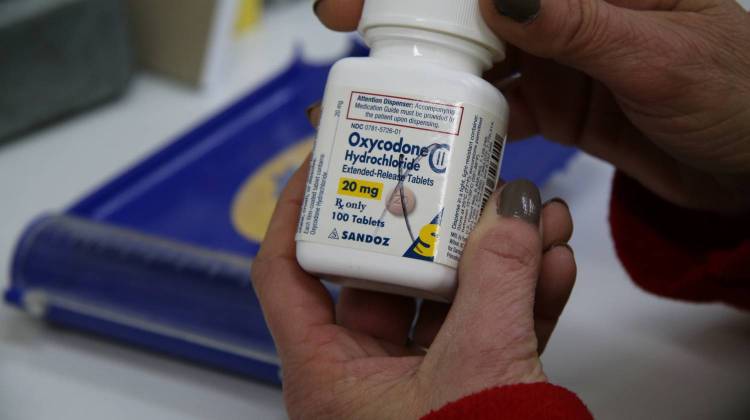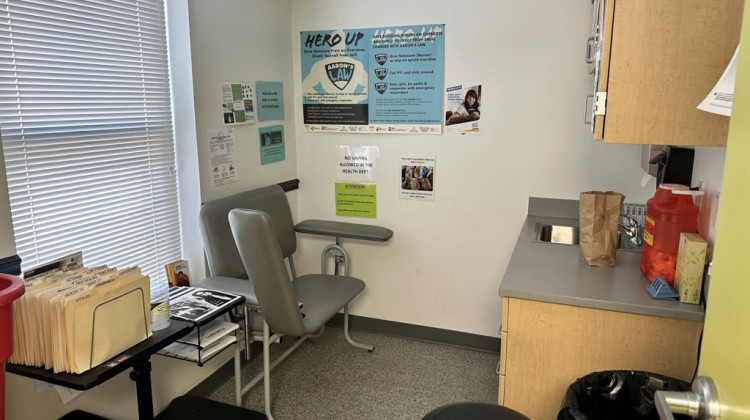
In Indiana, mandatory checks of the state’s monitoring program — called INSPECT — aren’t required, though pharmacists are required to enter prescribing information as soon as a prescription is filled.
Bram Sable-Smith/KBIA/Side Effects Public Media
A presidential commission last week released its report on recommendations to help curb the nation’s opioid crisis. Indiana stakeholders say they’re heartened the crisis is receiving national attention but think parts of the report missed the mark.
The 138-page report from the President’s Commission on Combating Drug Addiction and the Opioid Crisis, a list of policy recommendations, not demands, outlined dozens of actions the government could take to help Americans addicted to opioids. Among them include expanding federal drug courts and block granting addiction money to states.
The report also recommended mandatory checks of drug monitoring databases, which track who receives controlled substances.
In Indiana, mandatory checks of the state’s monitoring program — called INSPECT — aren’t required, though pharmacists are required to enter prescribing information as soon as a prescription is filled.
The commission also recommended Congress pass the Prescription Drug Monitoring Act, which would direct the Department of Justice to create a federal prescription data-sharing hub. But INSPECT Director Kara Slusser says states already share prescription drug data across state lines through a program called PMP InterConnect.
“This is one of the biggest misconceptions about PDMPs. There’s no need for a national PDMP,” Slusser said.
The program, developed through the National Association of Boards of Pharmacy, has been in place since 2011.
Slusser says it’s not the first time she’s heard people mention a federal database, but the majority of states already use PMP InterConnect
“I’s absolutely utilized,” said Slusser. “ If you ask any PDMP director in the country the only mechanism for sharing state data is pmp nterconnect. And most people within the PMP community will tell you 44 and soon to be 45 states are already connected”.
Though the commission said Congress was on the hook for helping fund response to the crisis, the report stopped short of recommending a specific amount, an omission that disappointed treatment advocates.
Justin Phillips, founder of the addiction treatment advocacy group Overdose Lifeline, testified before the commission, as she has before to state agencies in the past. She says she’s somewhat heartened the conversation is being buoyed by high-profile politicians such as Chris Christie.
“When we put it in writing and when we hear recommendations and we hear more than one person on the commission who’s been a leader for a number of years … then that gives me more faith they’ll continue to fight.”
She says she tries to keep the faith.
“That said, I also have experience that we have a report that things aren’t moving and things aren’t happening and that concerns me.”
The recommendations are just that — recommendations. They don’t mandate the president or Congress implement certain policies, though the White House said in a statement it was grateful for the report and would review the recommendations in the coming weeks.
This story was produced by Side Effects Public Media, a reporting collaborative focused on public health.
 DONATE
DONATE








 Support WFYI. We can't do it without you.
Support WFYI. We can't do it without you.